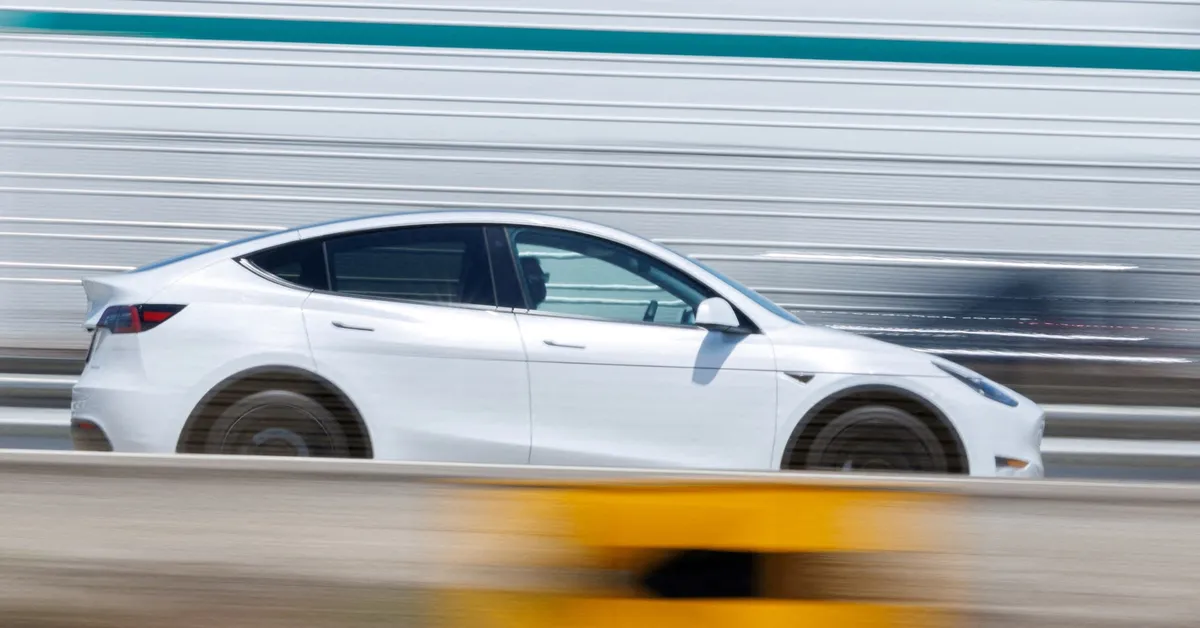
The Elon Musk-led carmaker has made significant efforts to boost sales ahead of the impending expiration of the $7,500 federal tax credit. Utilizing a multifaceted approach, Tesla combined discounts, financing deals, social media advertisements, and direct customer emails to drive consumer interest and sales. However, some analysts are skeptical about the sustainability of this sales surge.
Elliot Johnson, the Chief Investment Officer at Evolve ETFs, expressed concerns about the potential for a "soft couple of quarters" following the recent sales boost. He noted that the surge in sales may reflect a pulled-forward demand, primarily aimed at locking in federal incentives rather than indicating a genuine increase in consumer interest. Johnson suggested that it might be rational for investors to "sell the news and buy again next year," as Tesla shares dipped by 3.4% in afternoon trading.
Despite the recent dip, Tesla's stock has experienced a rally, increasing nearly 14% this year as of Wednesday's close. This uptick coincided with the company's board proposing a substantial pay package for Musk, who has also purchased additional shares in the company.
In its latest report, Tesla announced it delivered 497,099 vehicles for the three months ending in September, marking a 7.4% increase from the previous year’s total of 462,890. This figure surpassed Wall Street's expectations of 443,919 vehicles. Notably, the deliveries included 481,166 units of the Model 3 compact sedan and its best-selling Model Y crossover.
Tesla is set to report its quarterly results on October 22. The company has experienced strong demand for its updated Model Y, particularly in China, where it recently began delivering the six-seat Model Y L. This family-oriented variant aims to enhance demand in the world's largest EV market.
While Tesla enjoys robust sales in certain regions, the European market remains a challenge. Competitors are aggressively promoting plug-in hybrids, and Chinese EV brands are gaining traction in this highly competitive landscape. According to the region's Automobile Manufacturers' Association, Tesla's sales in Europe, including the UK, fell by 22.5% in August, reducing its market share to 1.5%.
Looking ahead, Tesla's full-year 2025 delivery projections estimate approximately 1.61 million vehicles, which is about 10% below the 2024 forecast. To meet this projection, the company will need to deliver 389,498 vehicles in the upcoming December quarter.
Elon Musk’s substantial holdings in Tesla significantly contribute to his wealth. A recent surge in the company's stock price pushed his net worth past the $500 billion mark, reaffirming his status as the world’s richest person. The company's board has also proposed a shareholder vote on a new CEO award that could grant Musk approximately 12% of the company, potentially valued at up to $1 trillion, contingent upon meeting performance and valuation targets, including delivering 20 million vehicles over the next decade.
Musk has been repositioning Tesla as a technology company rather than merely an electric vehicle manufacturer, emphasizing advancements in AI-based self-driving systems, robotaxis, and humanoid robots.
Amidst these developments, Tesla has postponed the rollout of its lower-cost Model Y in the U.S., delaying the launch by several months. The company plans to manufacture this variant in China and Europe. Analysts suggest that the introduction of more affordable models is crucial for Tesla to maintain momentum following the expiration of the federal tax credit.
Matt Britzman, a senior equity analyst at Hargreaves Lansdown, noted that the new, stripped-down version of the Model Y is designed to be roughly 20% cheaper to produce compared to the refreshed version. This model could scale production to approximately 250,000 units per year in the U.S. by 2026, which may play a vital role in cushioning any post-credit slowdown.
Reporting by Akash Sriram in Bengaluru and Abhirup Roy in San Francisco; Editing by Anil D'Silva. Akash specializes in covering technology companies, electric vehicles, and the space industry, while Abhirup focuses on the automotive sector, particularly Tesla.